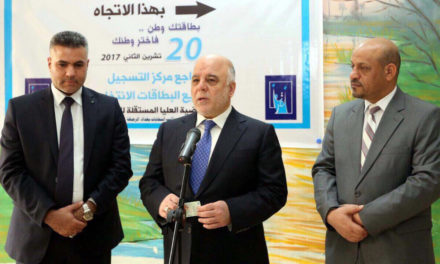It has now been more than a year since Mustafa Al-Kadhimi assumed Iraq’s premiership. His rise followed nationwide protests as young Iraqis, incensed by corruption at all levels of state, took to the streets to protest. The youth are a force with which Iraqi leaders must reckon: almost half the country is under 20 years old. They cannot compare their plight to life under Saddam Hussein; rather, they contrast Iraq’s current dysfunction with other oil-rich Arab states whose standard of living, security, and opportunity are greater.
Kadhimi’s mandate was as a transitional leader to undertake difficult economic and electoral reforms, but he has little to show for his efforts. True, Kadhimi was dealt an unfair hand: not only had Adil Abd Al-Mahdi drained the treasury by dispensing civil service jobs as patronage with little consideration of fiscal prudence, but he also had to manage a crash in the price of oil and the COVID-19 pandemic. While Kadhimi made payroll, Iraqis largely assess his administration as an opportunity lost: Kadhimi deferred too much to the traditional powerbrokers whose support he sought as he considered his own ambitions, and failed to seize momentum for substantive reform.
While many diplomats and some Iraqis hope the October 2021 elections might usher in a government capable of tackling systematic corruption, a more realistic assessment throws cold water on such hopes. Established parties will likely continue to dominate Iraqi politics. Whether Sunni or Shia, Arab or Kurd, none has incentive to change a system from which they have so handsomely profited.
Elections are still important but if Kadhimi is committed to reform and wants to cement a legacy that constrains the opportunity of politicians to treat ministries and government services as petty and profitable fiefdoms, he should follow the lead of other countries and embrace E-Government. Despite some efforts to bring basic government services online, the United Nations ranks Iraq in the bottom half of all countries, below Burundi—the world’s poorest country in terms of per capita income—and not much better than Yemen and Somalia.
In the 1970s, Iraq was the least corrupt Arab state until Saddam’s wars of aggression against first Iran and then Kuwait brought not only military defeat, but also suffocating sanctions. The economic distortion, black market economy, and the United Nation’s own corruption made matters worse. After the United States invaded in 2003, it made matters worse by pouring money into an economy that did not have the institutional capacity to handle it. In 2004, Iraq ranked 129 out of 146 in Transparency International’s Corruption Perceptions Index alongside Kenya and Pakistan. Rather than improve its ratings, its ranking fell below that of the Saddam era. Today, Iraq remains one of the world’s most corrupt countries, well below its former comparative countries and not much better than Congo and Haiti.
Contrast that with Rwanda, a country that hit rock bottom in 1994 after civil war and the anti-Tutsi genocide. It debuted on the Transparency International list in 2005 on par with Lebanon and Iran. Its leadership prioritized anti-corruption in a way Iraq never has. But what really solidified Rwandan anti-corruption efforts was the launch of iRembo, a tri-lingual digital portal for government services. In 2015, the government launched the website as a payment gateway for five different government services. By 2019, there were close to 100 services available on the platform and Rwandans and tourists alike could utilize either Rwandan francs or U.S. dollars. The webpage handles everything from payment of traffic camera tickets to passport applications to business permits to land transfers, and drains the opportunity for petty corruption. When I recently had to take a pre-departure COVID-19 test in the Rwandan capital Kigali, I had to sign up and pay $50 for my test ahead of time. When I arrived at the clinic, they had only to see the receipt for my electronic payment that had gone directly into the government’s account; no one at the local lab nor any administrator along the way had any opportunity to collect let alone divert the cash, even if they were so inclined.
Nor is Rwanda unique. After the break-up of the Soviet Union, some of its newly independent constituent countries descended into cesspits of corruption, but others largely escaped. Estonia, for example, puts 99 percent of its government services online and is among the world’s least corrupt countries. Lower e-participation values, whether in Ukraine, Belarus, or Tajikistan, coincide with higher corruption.
On May 1, 2021, the Trade Bank of Iraq launched its mobile money app. While there have been some technical glitches, the concept has caught on. Rasheed Bank has plastered advertisements for their phone app on billboards across Baghdad. It even seeks to go one further than the Trade Bank of Iraq by allowing customers to apply for loans online. Companies like the food delivery service Lezzoo show that Iraqis are ahead of the government on digital technology.
Last year, the Iraqi government released videos to help guide Iraqis through government processes, but these ultimately do little to encourage good governance. Rather, they are like putting up a street sign while neglecting to pave the road. In Iraqi Kurdistan, for example, businessmen complain of forced payments to environmental regulatory bodies and other government departments who use money either for party purposes or to expend on their own offices but not on their stated purposes. Almost one-third of Iraqi households report paying a bribe for public services, and a similar number suggests that the police are corrupt.
E-payment services and a one-stop portal for all government services would eliminate such problems overnight. Corrupt police might prey on citizens, but cannot profit easily if citizens had to pay electronically. While Iraq has one of the most cellular phone-networked populations, only half of Iraqis use the internet. This does not necessarily mean that non-networked Iraqis will be excluded from government e-services. In Rwanda, for example, even rural villages staff iRembo offices where walk-in customers can receive help to access the platform.
Simply put, all administrations from Ayad Allawi’s appointed premiership post-Coalition Provisional Authority to Kadhimi’s transitional administration today have promised to tackle corruption, but none has effectively done so. It would take a relatively small investment on the part of the Kadhimi administration, however, to shift government services to a portal and ensure that fees for all government services, taxes, or fines go directly into the Iraqi government’s account. Inaugurating a portal for all Iraqis would be the type of visible progress Iraqis crave.
Certainly, this would not prevent top-level corruption by Iraqi politicians collecting kickbacks on contracts or utilizing their positions for financial or business gain; that will take televised trials to bring public shame, ridicule, and punishment to those participating in such schemes. It would, however, dry up almost overnight opportunities for corruption at a local level. This in turn would enable, over the following decade or two, for a new generation of Iraqis to return to the 1970s-era, pre-Saddam cultural attitudes which viewed participation in corruption with contempt. Iraqi politicians are not going to reform themselves; it is time to utilize technology not only to bypass their inaction, but also to allow Iraq to leapfrog ahead of most states in the region in terms of clean government and business environment.

Michael Rubin
Michael Rubin is a resident scholar at the American Enterprise Institute in Washington, D.C.










